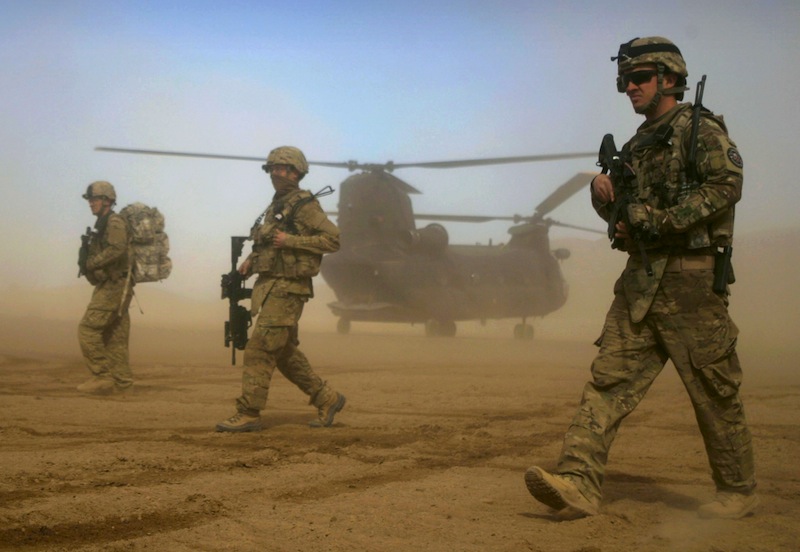SEATTLE (AP) — The Army staff sergeant charged with slaughtering 16 villagers during one of the worst atrocities of the Afghanistan war has agreed to plead guilty in a deal to avoid the death penalty, his attorney told The Associated Press on Wednesday.
Staff Sgt. Robert Bales is scheduled to enter guilty pleas to charges of premeditated murder June 5 at Joint Base Lewis-McChord south of Seattle, said lawyer John Henry Browne. A sentencing-phase trial set for September will determine whether he is sentenced to life in prison with or without the possibility of parole. The judge and the commanding general at Joint Base Lewis-McChord, where Bales is being held, must approve a plea deal.
“The judge will be asking questions of Sgt. Bales about what he did, what he remembers and his state of mind,” Browne said. “The deal that has been worked out … is they take the death penalty off the table, and he pleads as charged, pretty much.”
An Army spokeswoman at Joint Base Lewis-McChord did not immediately return a call seeking comment Wednesday.
Browne previously indicated Bales remembered little from the night of the massacre, and he said that was true in the early days after the attack. But as further details and records emerged, Bales’ began to remember what he did, the lawyer said.
Bales is contrite about the killings, Browne said. The attorney would not elaborate on what his client will tell the judge. He described Bales as “crazed” and “broken” the night of the attack.
The defense team, including military lawyers assigned to Bales as well as Browne’s co-counsel, Emma Scanlan, eventually determined after having Bales examined by psychiatrists that he would not be able to prove any claim of insanity or diminished capacity at the time of the attack, Browne said.
Bales, an Ohio native and father of two from Lake Tapps, Wash., slipped away from his remote southern Afghanistan outpost at Camp Belambay early on March 11, 2012, and attacked mud-walled compounds in two slumbering villages nearby. He had been drinking contraband alcohol, snorting Valium that was provided to him by another soldier, and had been taking steroids before the attack.
Most of the victims were women and children, and some of the bodies were piled and burned. The slayings drew such angry protests that the U.S. temporarily halted combat operations in Afghanistan. It was three weeks before American investigators could reach the crime scenes.
Bales was serving his fourth tour in a combat zone, and the allegations against him raised questions about the toll multiple deployments were taking on American troops. For that reason, many legal experts believed it that it was unlikely that he would receive the death penalty, as Army prosecutors were seeking. The military justice system hasn’t executed anyone since 1961.
Nevertheless, the plea deal could inflame tensions in Afghanistan. In interviews with the AP in Kandahar in April, relatives of the victims became outraged at the notion Bales might escape the death penalty and even vowed revenge.
“For this one thing, we would kill 100 American soldiers,” said Mohammed Wazir, who had 11 family members killed that night, including his mother and 2-year-old daughter.
“A prison sentence doesn’t mean anything,” said Said Jan, whose wife and three other relatives died. “I know we have no power now. But I will become stronger, and if he does not hang, I will have my revenge.”
Three of Jan’s other family members were wounded, including his 7-year-old granddaughter, who was shot in the head.
___
Johnson can be reached at https://twitter.com/GeneAPseattle
___
AP’s special regional correspondent for Afghanistan and Pakistan, Kathy Gannon, contributed from Kandahar.
Copyright 2013 The Associated Press.






